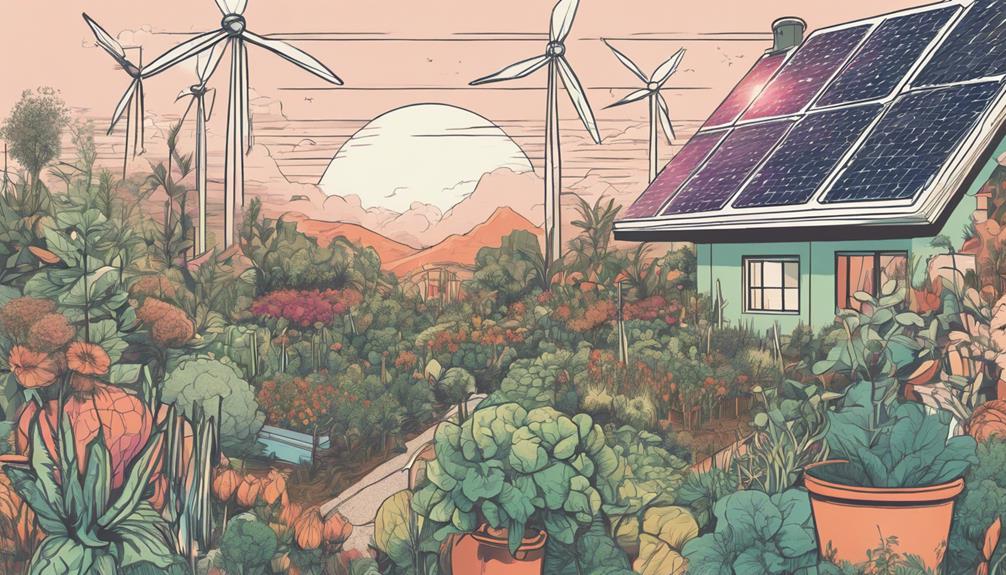“I’ve noticed that my garden in San Diego isn’t as vibrant as it used to be.
Climate & Soil, Permaculture
Did you know?
"Plants grown in worm castings grew 3 times faster than identical plants grown in potting mix". Learn how to make your plants & garden thrive with worm composting... Click Here To Learn How.
Permaculture is more than just gardening; it's a fulfilling journey into sustainable living. By embracing permaculture, you're not only growing your own fresh, organic food, but you're also creating a thriving ecosystem right in your backyard. It’s about working with nature, using resources wisely, and making a positive impact on the environment. Permaculture offers a way to live more harmoniously with the earth while reaping the benefits of a lush, productive garden. Let's explore the inspiring world of permaculture together!

Rachel is here to teach you how to create your own unique edible landscape design. She'll show you how to work within your local ecosystem and existing resources to save you time and money. Get the look and feel of an ornamental landscape whilst growing a ton of food using time tested permaculture principals at the same time...
Rachel graduated from the University of Minnesota in 2003 with a B.S. in Horticulture and Landscape Design and received her Permaculture Consultant certificate in 2010. Along with teaching others everything there is to know about permaculture and landscape design, she also runs a successful edible and ecological landscape design business. Her unique design style blends ornamental and permaculture landscape techniques for clients in and around Madison, WI as well as virtually... Learn more here.
Here are the basics of permaculture. Keep scrolling down to find hundreds of expert permaculture Q&As sent in by site visitors and readers over the years...
Permaculture is a way of designing your garden or living space to work in harmony with nature. Instead of fighting against natural processes, you use them to your advantage. It's about creating sustainable systems that take care of the earth, people, and share resources fairly.
Start by observing your space. Notice where the sun hits, how water flows, and what plants are thriving naturally. From there, you can begin small by planting a few native or edible plants that suit your environment, or by setting up a compost bin.
Not at all! Permaculture can be practiced on any scale, whether you have a large yard, a small garden, or even just a balcony. It's all about maximizing the space you have and using it wisely to grow food, conserve water, and support local wildlife.
Permaculture zones are a way to organize your space based on how often you'll need to visit each area. For example, plants that need daily care should be closest to your home (Zone 1), while things like compost piles can be further away (Zone 3). This helps you manage your space more efficiently.
Permaculture encourages building healthy soil through composting, mulching, and using organic matter like leaves or grass clippings. You can also grow cover crops that add nutrients back into the soil, making it richer and more fertile over time.
Water is vital in permaculture. The goal is to manage it wisely, so you're not wasting a drop. This might mean collecting rainwater, setting up a drip irrigation system, or planting in ways that retain moisture in the soil, reducing the need for extra watering.
Absolutely! Animals like chickens or bees can play a significant role in permaculture. Chickens can help with pest control and fertilization, while bees support pollination. It’s all about creating a balanced system where every element, including animals, contributes to the whole.
Permaculture favors natural pest control methods, like encouraging beneficial insects, planting pest-repelling herbs, or using companion planting strategies. It’s about creating a healthy ecosystem where pests are managed without the need for chemicals.
Begin with composting kitchen scraps, setting up a rain barrel, or planting a small herb garden. These are simple steps that get you started on your permaculture journey and make your space more sustainable right away.
Permaculture helps reduce waste, conserve water, and create habitats for wildlife. By working with nature instead of against it, you're helping to restore natural ecosystems, reduce your carbon footprint, and contribute to a healthier planet.
If you're looking for some of the most popular books about permaculture, we recommend adding the following to your library...
Hundreds of permaculture Q&A's that our newsletter readers & site visitors have sent in over the years, answered by our experts...
Climate & Soil, Permaculture
Permaculture, Permaculture Principles
Permaculture, Permaculture Water Management
Permaculture, Permaculture Waste Reduction
Community Permaculture, Permaculture
Permaculture, Permaculture Waste Reduction
Permaculture, Permaculture Economics
Permaculture, Permaculture Principles
Permaculture, Permaculture Water Management
Climate & Soil, Permaculture
Community Permaculture, Permaculture
Permaculture, Permaculture Waste Reduction
Permaculture, Permaculture Economics
Permaculture, Permaculture Design
Climate & Soil, Permaculture
Permaculture, Permaculture Water Management
Permaculture, Permaculture Principles
Animal Integration, Permaculture
Community Permaculture, Permaculture
Permaculture, Permaculture Waste Reduction
Here are some additional permaculture resources you might find valuable. If you have a website you would like listed here, please contact us.
The Permaculture Research Institute (PRI) is based in NSW Australia, headed by Geoff & Nadia Lawton it provides education & training & daily Permaculture news and information.
PINA is a professional association for Permaculture Practitioners working across North America and Hawaii to promote permaculture pathways in professional development.
Regeneration International aims to reverse global warming & end world hunger by facilitating & accelerating the global transition to regenerative agriculture & land management.
If you have a website useful for those interested in learning more about permaculture, get in touch with us so we can add it here.